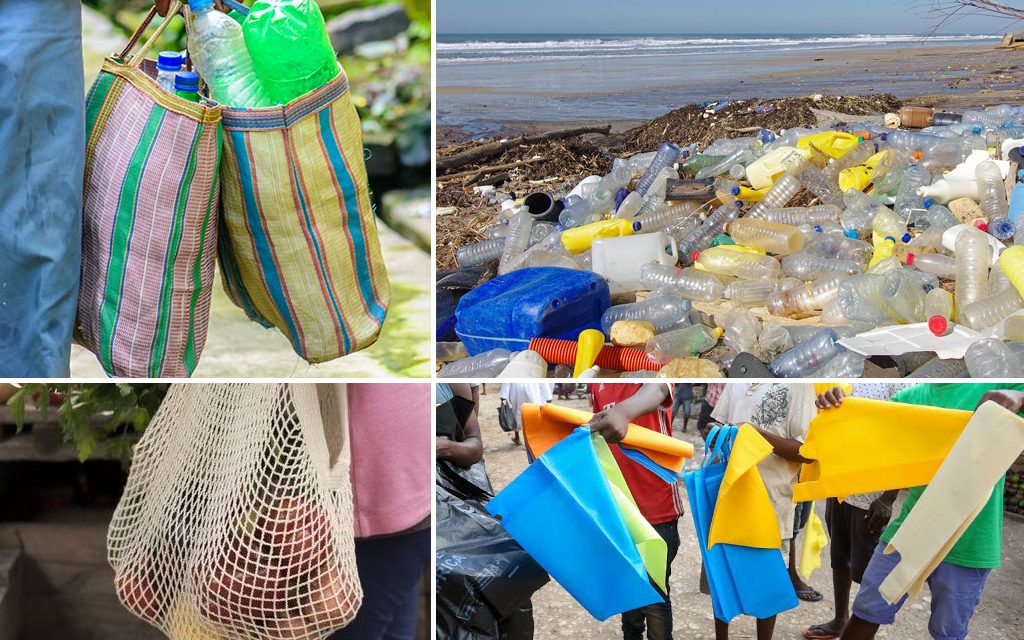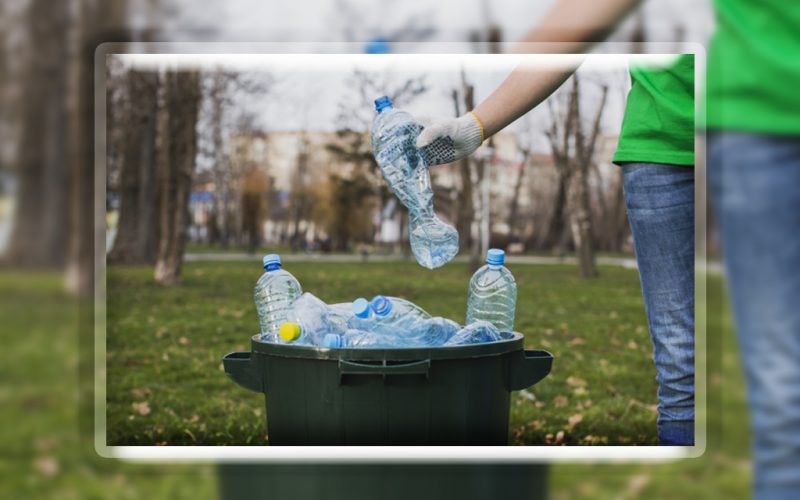Plastic pollution has become an epidemic that doesn’t cease to stop. Look around yourself and tell us whether there is a single item which isn’t plastic of one form or another. Pens, food containers, dustbins, straws, water bottles, food trays, toothpaste cover, even your phone cover, the list is endless. Plastics have occupied a big space in our life and rendered us helpless by exposing us to cancer-causing chemicals. Plastic is indeed a crisis hiding in plain sight threatening the very survival of human and wildlife.
If you are feeling anxious or tense reading that, switch to some goofy post but if you wish to get a reality check and are brave enough to make a contribution to change the world for a better future, feel free to read the post. No matter you’re a working professional, student, traveler or anyone with any designation, you must know the consequence and effects plastic pollution is creating as it’s affecting us all.
Understand the Issue: Plastic Pollution
Every year millions of tons of plastic waste take lives of seabirds and marine mammals. Every piece of plastic we’re using is not reaching the landfill but to the oceans where the plastic with toxins are mercilessly thrown and ends up killing innocent oceanic creatures. Interestingly, this cycle complete with us human and affect us all together. For the good of the planet, it’s time we start thinking about responsible usage and disposal of plastics. Otherwise, we are already heading towards a future with zero chances of survival. Today, plastic has been detected on shorelines of all the continents majorly found near popular tourist destinations and densely populated areas. It is a matter of grave concern for all of us to take this issue with the seriousness it demands.
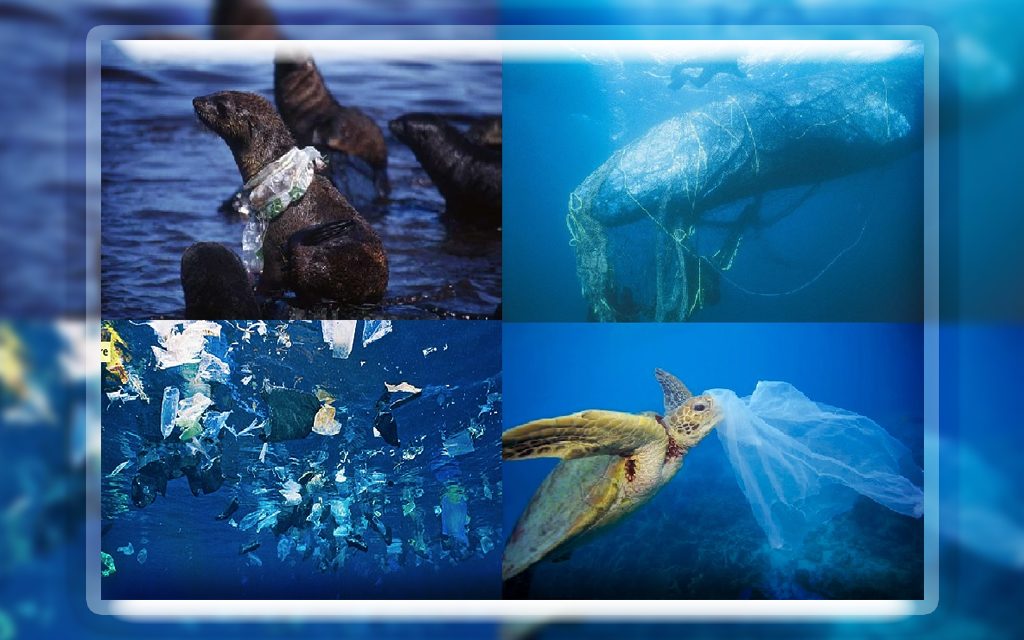
What is Plastic?
Plastic is a non-biodegradable polymer made from petroleum with properties suited for a variety of purposes and applications. Plastic takes thousands of years to degrade in the environment. Think about tonnes of it and you get the picture of how many years will it take to rid of plastic leaked into oceans. There is no way of disposing plastic completely as even when you burn it, it will easily take hundreds of years to degrade. Sounds alarming? Well, it is.
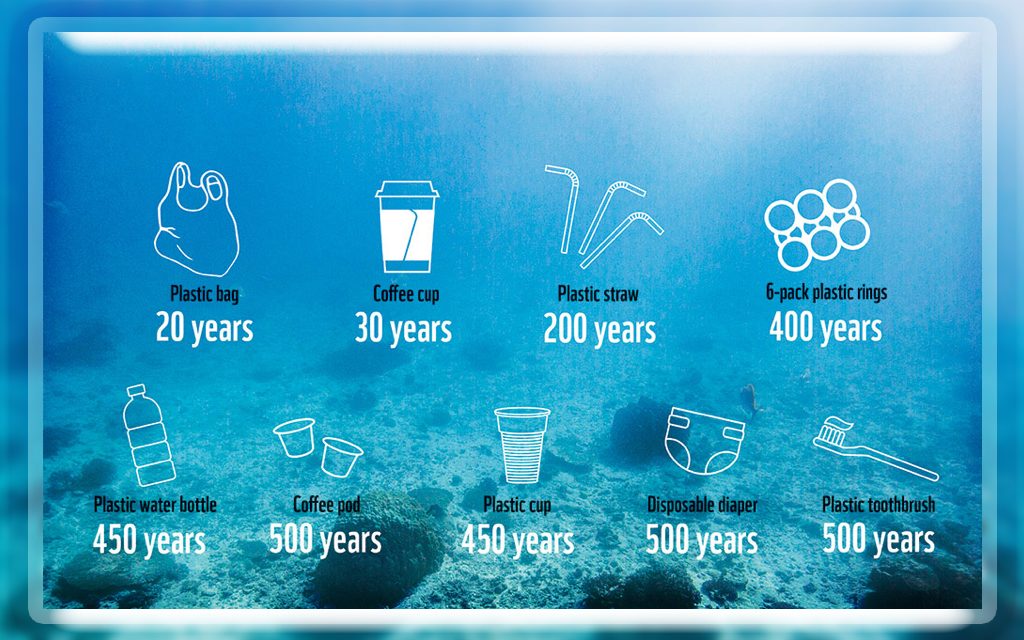
How Plastic Ends Up In Oceans?
Every minute, a truckload of plastic is dumped into oceans. More than 13,000,000 tonnes of plastic are leaked into the ocean every year that damages and kills 100,000 marine animals annually. Marine species ingest or get entangled/ suffocated by the plastic debris resulting in injuries, exposure to life-threatening chemicals and death in the end. The contaminants are transferred in our body through seafood and start affecting our health. The bottom line is, whether we intend to litter or not, there are chances that the plastic we throw could make its way to the sea.
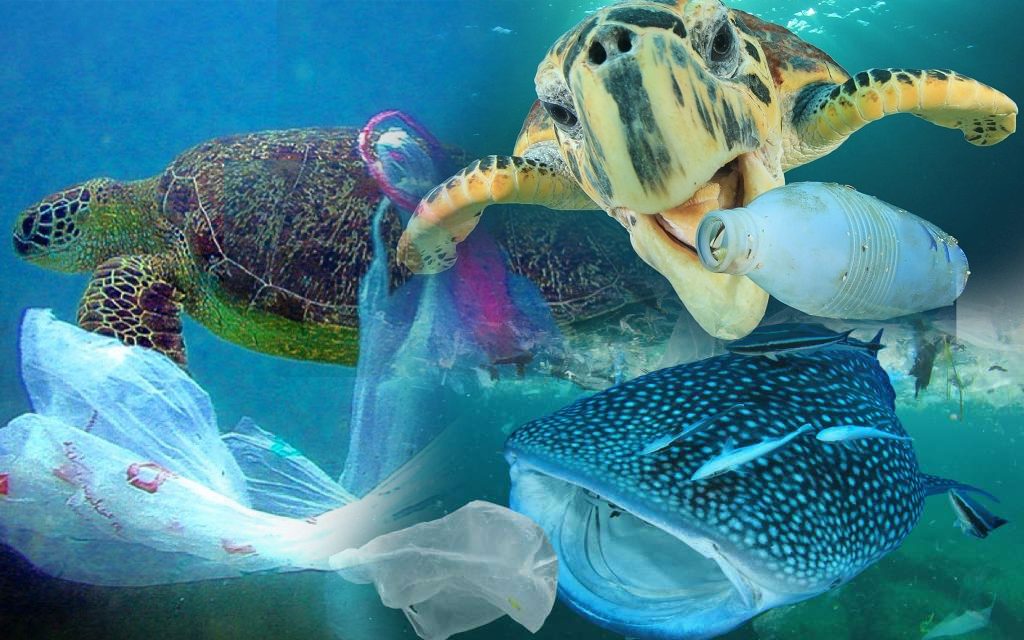
Why Plastic Pollution Needs Immediate Attention?
Marine wildlife involving fishes, dolphins, seabirds, whales and turtles, swallow the plastic waste mistaking it for prey and die of starvation as their stomachs are packed with the debris. Apart from that, they also get exposed to reduced ability to swim, lacerations, infections and internal injuries. Coral suffers bleaching when plastic suffocates the algae living in them and turn them white and dead as a result of stress reaction caused by warm water temperature. When we get in touch with these marine animals (in form of seafood), we risk our health due owing to the exposure of chemicals and toxins.
The chemicals used while producing plastics are carcinogenic and can break the safety wall of endocrine system and cause neurological, developmental, reproductive and immune disorders in both humans and wildlife. Moreover, there can be no denying to the fact that plastic pollution threatens food security, health, coastal tourism and climate change. The contaminants transferred between marine life and human is marked as an alarming situation, which, if not managed/controlled on time can cause serious damage to us.
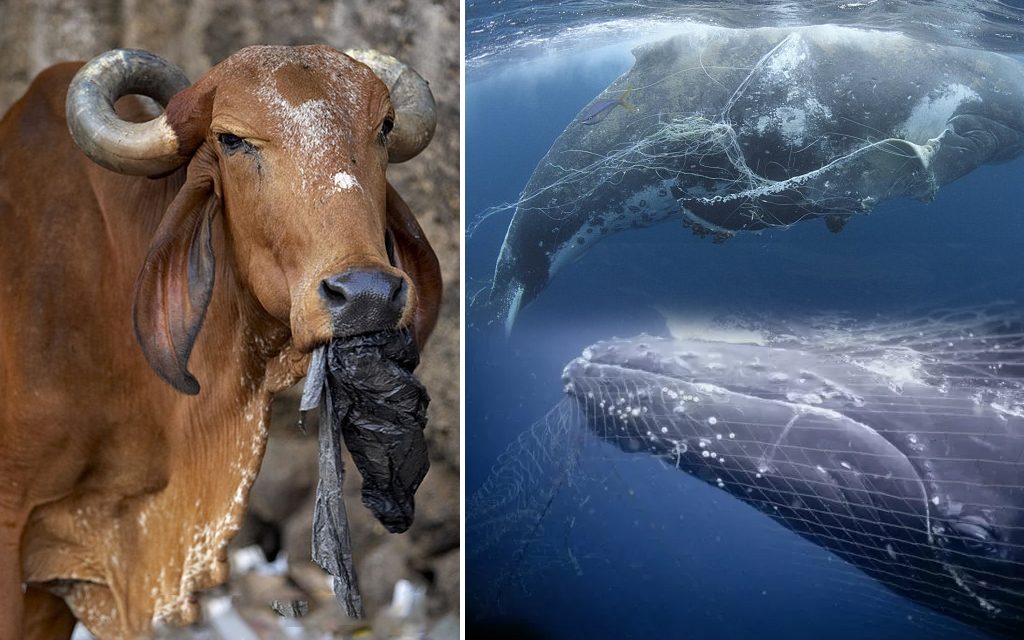
What Can We Do To Combat Plastic Pollution?
Unless you want to swim in the ocean with plastic and no traces of marine life, here’s what we all can do to control the current situation of plastic pollution:
- Banning single-use plastic and using disposable plastic instead.
- Controlling the production and distribution of plastics.
- Using jute, paper and cloth bags as an alternative to polythene bags.
- Improving waste management practices.
- Gathering stakeholders and suggesting a ban on production of certain types of microplastics.
- Participate in cleanup by volunteering to pick-up marine litter in your local community.
- Promoting the use of plastic waste for road construction for gainful utilization of waste.
- Research, innovate and develop eco-friendly methods to recycle plastics.
- Recycling and reusing plastic instead of tossing in the oceans.
- Spreading awareness about the threat of plastic pollution for the survival of all living beings on earth.
- Joining the cause of saving marine life from plastic waste actively and encouraging others for the same.
